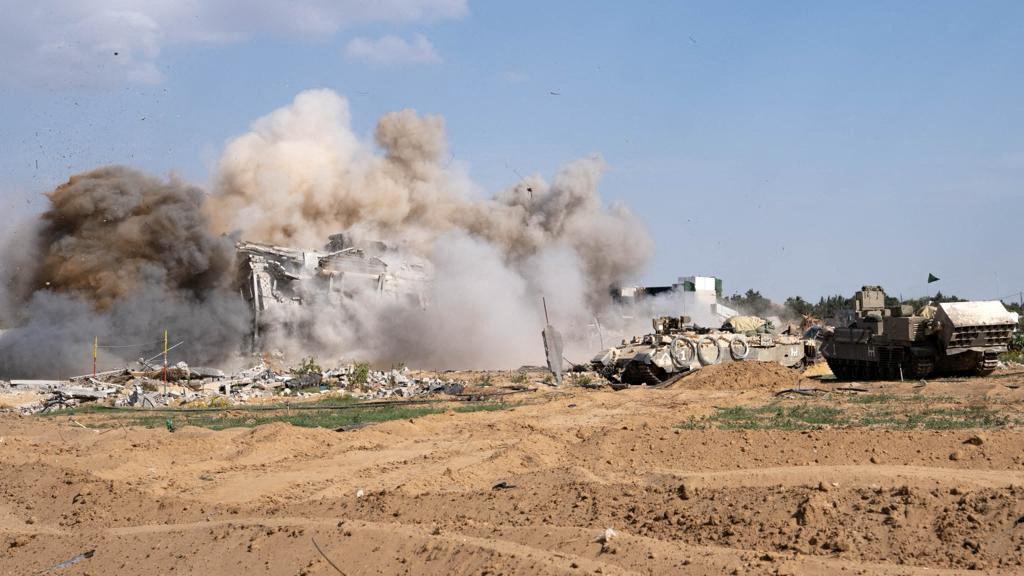GAZA/RAMALLAH—Israel on Sunday rejected calls for a ceasefire and said its forces had encircled Gaza City as U.S. Secretary of State Antony Blinken scrambled to contain a crisis that threatened to cause further escalation in neighboring Lebanon.
Gaza was under “unprecedented bombardment” from Israel on Sunday, Palestinian news agency WAFA reported, while Palestinian telecommunications company Paltel said that all communications and internet services had once again been cut.





